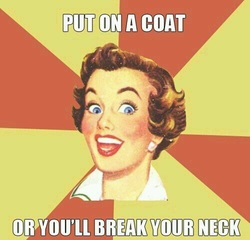A recent report in the Los Angeles Times* profiled the current phenomenon known as "microaggression" which it defined as "everyday slights and snubs, sometimes unintentional". Those speaking out against microaggression maintain that its belittling looks, comments and gestures are a subtle form of racism which encourage more blatant racism and macroaggression. Critics counter that "the microaggression movement chills free speech, increases conflict and perpetuates an aggrieved sense of victimhood." They also contend that labeling individuals who unintentionally offend as "aggressors" is harsh and could promote - rather than reduce - conflicts between groups.
Thus far, the nation's college campuses have been the main stage for the microaggression debate. But it is only a matter of time before the subject gains increased visibility in the workplace. When it does, microaggression will join harassment, bullying, diversity and inclusion as behaviors which employers rightfully expect their HR function to manage (or remediate) with wisdom, sensitivity and skill.
As microaggression's workplace profile rises, it would not be surprising to see case rulings by the EEOC or other regulatory agencies or attempts to protect employees from microaggression through legislation. Along the way, attorneys will no doubt size the opportunity to litigate employee claims of microaggression regardless of their factual merit.
Is microaggression "political correctness gone too far"? There is no clear or simple answer...and it is *not* the intent of this post to provide one. Rather, this post offers a practical approach for employers and HR practitioners to effectively - and proactively - deal with microaggression in the workplace. To illustrate the enormous challenge which HR practitioners face in trying to effectively assess/manage/prevent microagression, consider these documented examples:
1. Sensitivity. HR must take the lead on promoting and instilling a vocabulary of not just diversity, but inclusion in the workplace. See our the related diversity articles at the end of this post for details.
2. Perception. It is perhaps too early for HR to try and formulate set and fast rules on what behavior/language is considered microaggression. In the interim, a more practical approach may be to give credence to the saying, "perception is reality". If an employee feels (s)he is subject to microaggression, then that perception is reality to him or her. It is up to the HR practitioner to do a sufficiently objective and thorough in-house investigation to disposition the complaint and establish credibility with the subject employee that his or her complaints are taken seriously.
3. Remember What Your Mother Told You. Don't wait for litigation to dictate "doing the right thing", because we already know what that is...to use common sense and keep the "human" in "human resources". And when counselling employees, bear in mind this one saying which may be considered "cliche"...but like many other so-called "cliches", has a foundation in truth and is worth keeping it in mind : "My mother said if you don't have nothing nice to say, then don't say anything at all". (For some light-hearted proof that fathers agree with mothers on this advice, click here).
PhoenixHR LLC offers cost-effective solutions to help employers address microaggression and other workplace harassment threats through documentation, training, and objective third-party confidential investigations. Employers are invited to click here to obtain their free quote. Related:
Thus far, the nation's college campuses have been the main stage for the microaggression debate. But it is only a matter of time before the subject gains increased visibility in the workplace. When it does, microaggression will join harassment, bullying, diversity and inclusion as behaviors which employers rightfully expect their HR function to manage (or remediate) with wisdom, sensitivity and skill.
As microaggression's workplace profile rises, it would not be surprising to see case rulings by the EEOC or other regulatory agencies or attempts to protect employees from microaggression through legislation. Along the way, attorneys will no doubt size the opportunity to litigate employee claims of microaggression regardless of their factual merit.
Is microaggression "political correctness gone too far"? There is no clear or simple answer...and it is *not* the intent of this post to provide one. Rather, this post offers a practical approach for employers and HR practitioners to effectively - and proactively - deal with microaggression in the workplace. To illustrate the enormous challenge which HR practitioners face in trying to effectively assess/manage/prevent microagression, consider these documented examples:
- Saying "you guys" or "him" or "her" when speaking to a mixed gender group.
- Using the phrase "father and mother" being interpreted as demonstrating homophobic tendencies.
- Telling someone for whom English is a second language that (s)he "speaks English very well".
1. Sensitivity. HR must take the lead on promoting and instilling a vocabulary of not just diversity, but inclusion in the workplace. See our the related diversity articles at the end of this post for details.
2. Perception. It is perhaps too early for HR to try and formulate set and fast rules on what behavior/language is considered microaggression. In the interim, a more practical approach may be to give credence to the saying, "perception is reality". If an employee feels (s)he is subject to microaggression, then that perception is reality to him or her. It is up to the HR practitioner to do a sufficiently objective and thorough in-house investigation to disposition the complaint and establish credibility with the subject employee that his or her complaints are taken seriously.
3. Remember What Your Mother Told You. Don't wait for litigation to dictate "doing the right thing", because we already know what that is...to use common sense and keep the "human" in "human resources". And when counselling employees, bear in mind this one saying which may be considered "cliche"...but like many other so-called "cliches", has a foundation in truth and is worth keeping it in mind : "My mother said if you don't have nothing nice to say, then don't say anything at all". (For some light-hearted proof that fathers agree with mothers on this advice, click here).
PhoenixHR LLC offers cost-effective solutions to help employers address microaggression and other workplace harassment threats through documentation, training, and objective third-party confidential investigations. Employers are invited to click here to obtain their free quote. Related:





